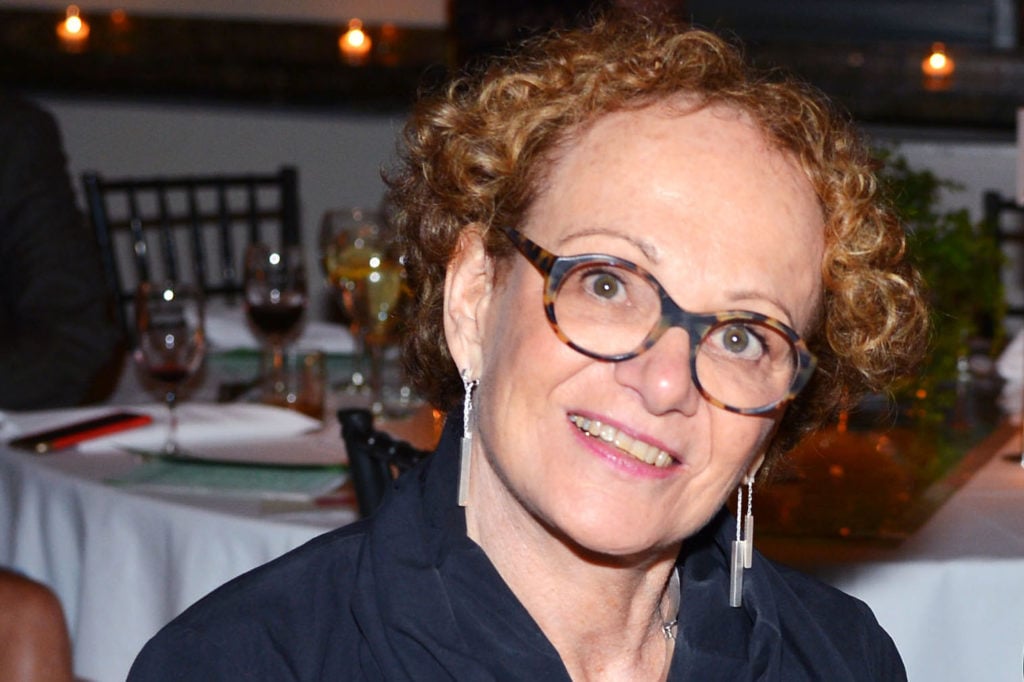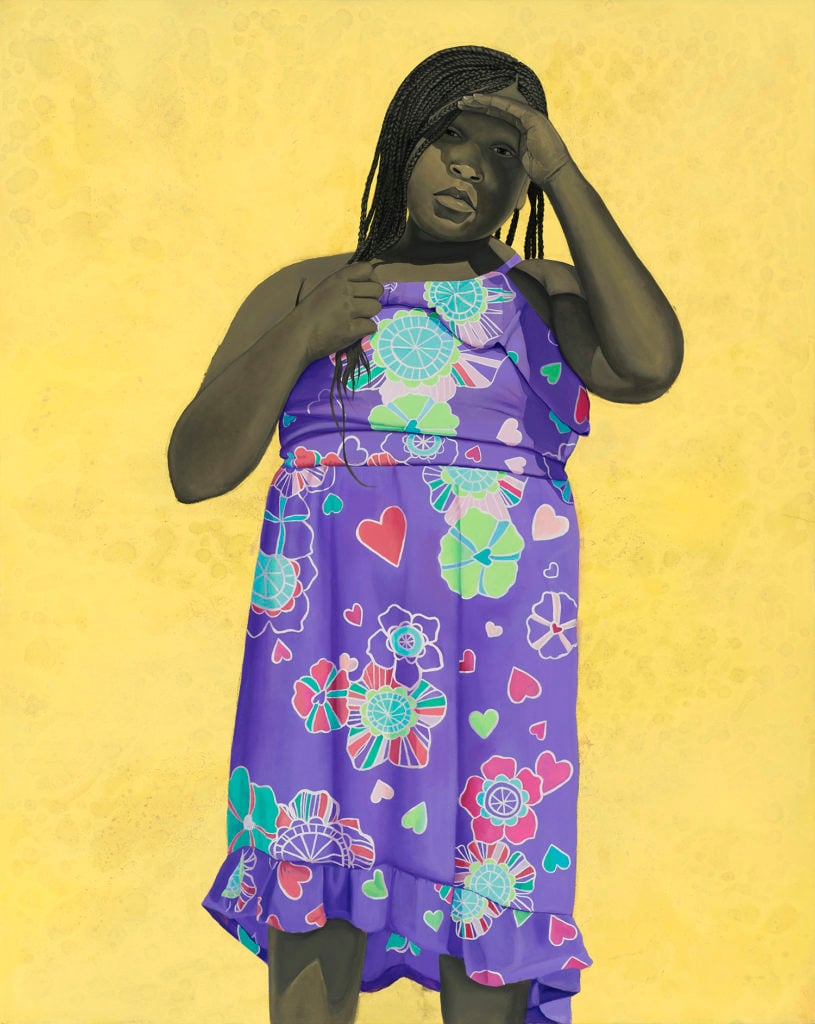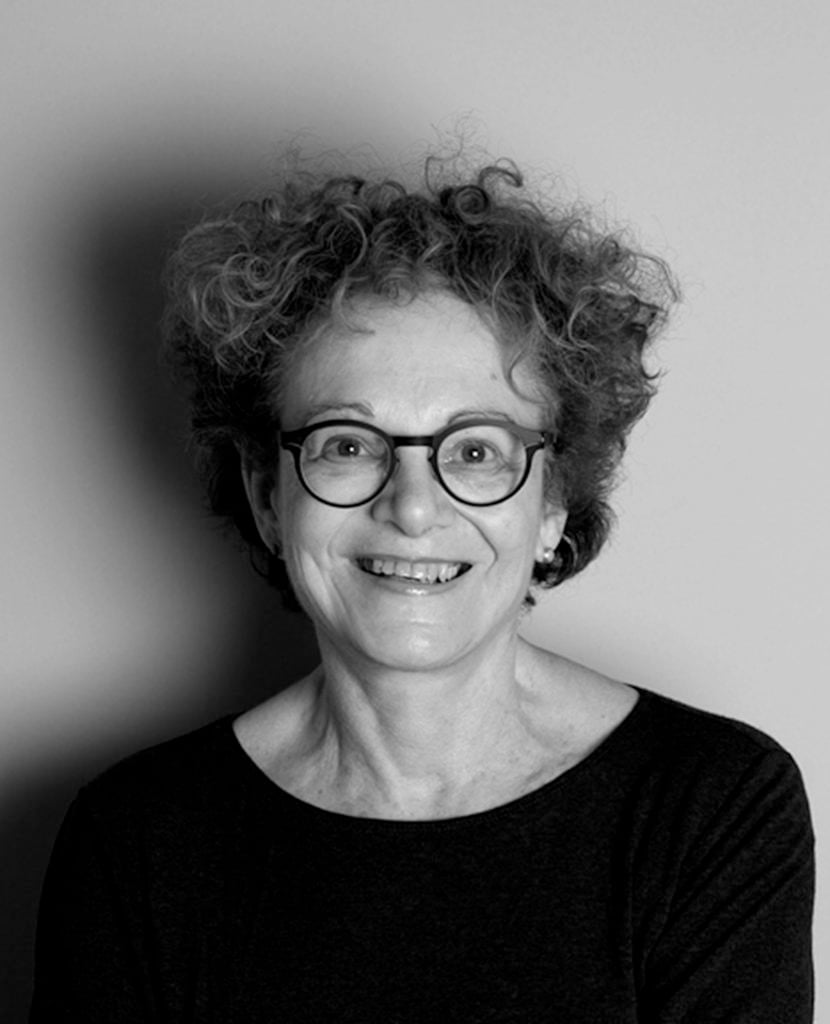People
‘The Reaction Has Been Overwhelming’: Susan Unterberg Comes Forward as a Major Anonymous Patron of Female Artists
The artist and philanthropist's organization has given out $5.5 million in grants to artists aged over 40.

The artist and philanthropist's organization has given out $5.5 million in grants to artists aged over 40.

Sarah Cascone

It’s been a wild few days for 77-year-old artist Susan Unterberg, who has revealed that she is the founder and funder of the Anonymous Was a Woman awards, which since 1996 have provided some 220 female artists over the age of 40 with $25,000 unrestricted grants—a total of $5.5 million.
“Oh my God—the reaction has been overwhelming! Who would have guessed?” Unterberg tells artnet News. She came forward on Friday in an interview with the New York Times, since which she has been getting hundreds of emails. “And this is really funny: On my own Instagram I went from 40 followers to well over 1,000,” she says.
Some of the most touching responses have been from the many artist Anonymous has helped over the years. The illustrious list of grant recipients includes Oscar-winning documentarian Laura Poitras, 2015 US Venice Biennale representative Joan Jonas, and, from the most recent class of 2017 awardees, presidential portraitist Amy Sherald, who has since become a sensation on the strength of her painting of Michelle Obama for the Smithsonian’s National Portrait Gallery in Washington, DC.
“To be recognized by Anonymous Was a Woman was the more significant than any thing that could have been bestowed upon me at the time,” wrote Liz Deschenes in a post on the organization’s Instagram. “It was 2004 and I had very little commercial interest in my work—it was a very difficult time, made much less difficult by the notion that someone had paid attention to my work and efforts. Thank you for your generosity.”

Amy Sherald, All Things Bright and Beautiful (2016). Courtesy of the artist and Hauser & Wirth, ©Amy Sherald.
“As an immigrant woman, AWAW is the biggest honor I’ve received for my work. It made me believe that regardless of your ethnicity, religion, race etc. if you work hard you will be recognized by other amazing and strong women!” wrote Shiva Ahmadi, a 2016 honoree.
Based on this feedback, Unterberg realized, “It was not only the money, but also the support of other women backing them that gave them the push they needed to continue.”
Reading these sentiments “does feel very gratifying,” Unterberg admits, but that’s not why she finally decided to come forward. “It seemed to be a great time for women to speak up, and I felt I could be the most forceful advocate using my own voice,” she says. “This is a political moment in time. It’s important to emphasize the value of the arts, which is currently not being recognized by the current administration.”
In a way, she’s reminded of what inspired her to found Anonymous in the first place, when the National Endowment of the Arts eliminated its grants for individual artists. Fast forward more than 20 years later, and the entire organization is in danger of being cut by President Donald Trump.
And while progress has been made for gender equality in the art world since the ’90s, Unterberg still sees a real need for the support Anonymous provides. “Women don’t get as many shows as men, and there isn’t financial parity in terms of what their work is worth,” she said. “Younger women, when they finish graduate school, they seem to be getting opportunities, and older women seem to be having a renaissance, some of them, but it’s still the middle career artists who are overlooked.”
With an eye toward rectifying the situation, Anonymous solicits nominations from some 130 women working in the visual arts firmly ensconced in the middle of their careers. This year, they received nominations for 73 different women—Unterberg, who no longer votes on the awardees, expects to spend about two weeks reviewing the materials. Then, an anonymous five-woman selection committee will spend a day deliberating to pick the 10 winners. (The Anonymous name is a line from Virginia Woolf’s A Room of One’s Own, which argues that anonymous works are by women artists who wanted to be taken seriously despite their gender.)

Susan Unterberg. Photo courtesy of Anonymous Was a Woman.
The hope is that by coming forward and publicizing the organization’s work, Unterberg can help provide greater recognition to Anonymous’s winners, both past and future. She is also considering holding seminars and other programs to complement the grant program, although its too early to say what shape those might take.
Another potential benefit to stepping forward is the possibility of inspiring other would-be philanthropists—and attracting additional donors to her cause. “We have a very very lean organization,” Unterberg says. “If someone wants to contribute it would be nice to increase the amount of the grants, which has always stayed at $25,000.”
in the long term, she is hopeful that her two daughters will continue Anonymous, which is funded by an inheritance from Unterberg’s father, Nathan Appleman, who died in 1992—”but I’m not going anywhere for awhile,” she clarifies. (In addition to her philanthropic work, Unterberg maintains a robust studio practice, working in Photoshop on layered photographic works she described as “self-portraits that deal with the political situation. It’s a book called Bad Politics that is almost like a visual diary showing how our democracy is being destroyed by this administration.”)
In all the years she’s run Anonymous, only one person has ever suspected her, and that was early on, after the grant winners were written up in the New York Times. “A fellow artist said to me one day ‘Oh, Susan, is it you who’s doing this?'” says Unterberg. “My answer was, ‘Oh, I wish it were!”
“I wanted to be anonymous because I wanted to be a relevant contemporary artist,” she explaines “I thought this would muddy the waters and people would look at my work in a different context.”
“I wasn’t encouraged to become an artist or generally to have career ambitions,” recalls Unterberg, who went back to school for art when her daughters were school-aged. “It was a time when women got their names in the paper when they got married or died.”
If she’s learned anything from those challenges, it’s the need for more organizations like Anonymous. “Women need the support of their own,” she says.